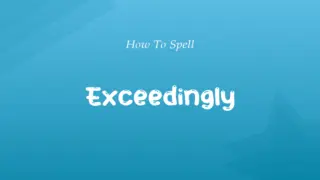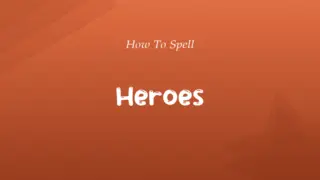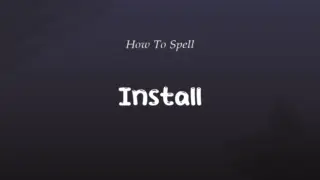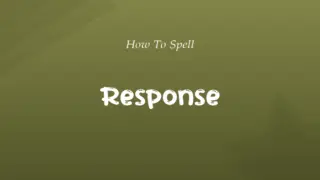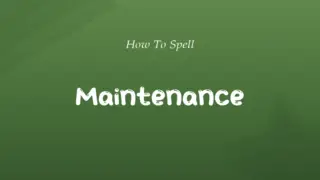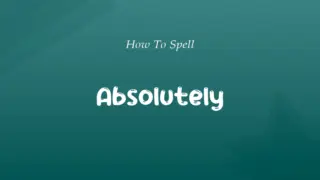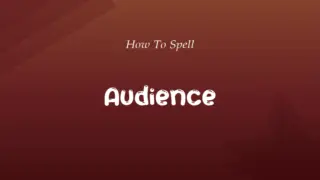Tommorow or Tomorrow: The Correct Spellings
Edited by Muazma Batool — By Muneeza Rehman — Published on October 3, 2023
Tommorow is the incorrect spelling. The correct spelling is "tomorrow," which means the day following today.
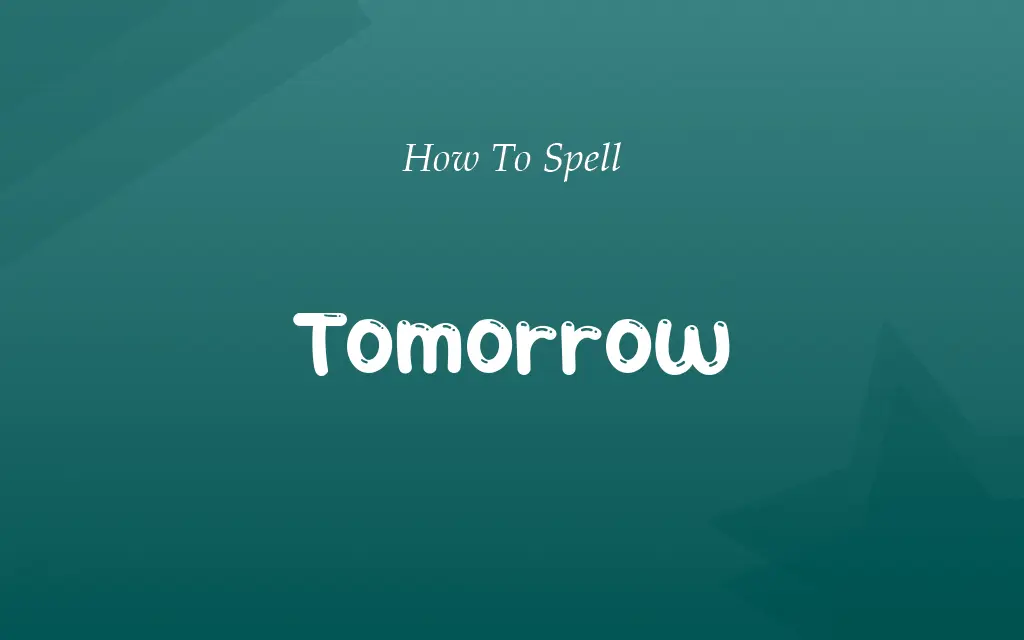
Which is correct: Tommorow or Tomorrow
How to spell Tomorrow?
Tommorow
Tommorow

Tomorrow
Tomorrow

Is it Tommorow or Tomorrow
The word "tommorow" is a common misspelling of the correct term "tomorrow." "Tomorrow" is the accepted spelling in the English language. It refers to the day that comes after today. On the other hand, "tommorow" has no recognized meaning in English. The word "tomorrow" has its origins from the Middle English term "to morrow," which quite directly means "to (the) morning."
Muneeza Rehman
Oct 03, 2023
The word "tomorrow" can be used in various ways in English, primarily to indicate the immediate next day. The word itself doesn't have many variations or forms. However, when trying to recall its correct spelling, remember that it has one 'm' and two 'r's, unlike "tommorow."
Muazma Batool
Oct 03, 2023
A simple trick is to think of the word "morrow," which means morning, and adding "to" at its beginning, hence forming "to-morrow" or "tomorrow."
Muneeza Rehman
Oct 03, 2023
How Do You Spell Tomorrow Correctly?
Incorrect: I'll see you tommorow at the park.
Correct: I'll see you tomorrow at the park.
Muneeza Rehman
Oct 03, 2023
Incorrect: Don't worry, tommorow will be better.
Correct: Don't worry, tomorrow will be better.
Emilio
Oct 03, 2023
Incorrect: Can we postpone this to tommorow?
Correct: Can we postpone this to tomorrow?
Muneeza Rehman
Oct 03, 2023
Incorrect: The meeting is scheduled for tommorow.
Correct: The meeting is scheduled for tomorrow.
Muazma Batool
Oct 03, 2023
Tomorrow Definitions
Tomorrow Meaning in a Sentence
The assignment is due by tomorrow afternoon.
Muneeza Rehman
Oct 03, 2023
Can we reschedule our plans for tomorrow?
Muneeza Rehman
Oct 03, 2023
I'm traveling to New York tomorrow.
Jack
Oct 03, 2023
Tomorrow is my birthday.
Muneeza Rehman
Oct 03, 2023
She's returning from her vacation tomorrow.
Jack
Oct 03, 2023
I believe the weather will be better tomorrow.
Muazma Batool
Oct 03, 2023
The technician will come to fix it tomorrow.
Emerson
Oct 03, 2023
Tomorrow, we will discuss the project in detail.
Muneeza Rehman
Oct 03, 2023
We'll know the results tomorrow.
Muneeza Rehman
Oct 03, 2023
The marathon is tomorrow, so I'm resting today.
Muneeza Rehman
Oct 03, 2023
Tomorrow Idioms
Tomorrow is another day
There's always a chance to start over or try again.
After losing the game, he sighed and said, Well, tomorrow is another day.
Muneeza Rehman
Oct 03, 2023
Tomorrow never comes
This means that things keep getting postponed indefinitely.
She always says she'll start dieting, but it's always tomorrow never comes with her.
Muneeza Rehman
Oct 03, 2023
Put off until tomorrow what you can do today
This advises against procrastinating tasks.
She believes in getting things done rather than put off until tomorrow what you can do today.
Muazma Batool
Oct 03, 2023
Live for today, for tomorrow may never come
Enjoy the present moment without worrying too much about the future.
He lives his life with the motto: Live for today, for tomorrow may never come.
Muneeza Rehman
Oct 03, 2023
Here today, gone tomorrow
Things or people may be temporary.
These latest fashion trends are often here today, gone tomorrow.
Stacy
Oct 03, 2023
Frequently Asked Questions
What's the correct spelling: "tommorow" or "tomorrow"?
The correct spelling is "tomorrow." The word "tommorow" is a common misspelling.
Muneeza Rehman
Oct 03, 2023
Does "tomorrow" have any roots or historical context?
Yes, "tomorrow" comes from the Middle English "to morrow," meaning "to the morning."
Muneeza Rehman
Oct 03, 2023
Is "tomorrow" used only as a noun?
No, "tomorrow" can be used both as a noun and an adverb.
Mark
Oct 03, 2023
Why do people often misspell "tomorrow" as "tommorow"?
The mistake often arises from phonetic confusion. When said fast, "tomorrow" can sound like it contains double 'm's.
Muazma Batool
Oct 03, 2023
Can "tomorrow" be used in different contexts other than indicating the next day?
Yes, "tomorrow" can also indicate the near future or a forthcoming time or event.
Daniel
Oct 03, 2023
Why is "tomorrow" spelled with two 'r's?
The spelling comes from its origin in Middle English, where it was spelled as two words: "to morrow," which means "to the morning."
Tony
Oct 03, 2023
Are there any idiomatic expressions that use the word "tomorrow"?
Yes, there are several idioms like "Tomorrow never comes" and "Tomorrow is another day."
Mark
Oct 03, 2023
Is "tomorrow" related to the word "morrow"?
Yes, "morrow" means "morning" or "the next day," so "tomorrow" can be thought of as "to the morning."
Muneeza Rehman
Oct 03, 2023
How can one easily remember the spelling of "tomorrow"?
Think of the word "morrow," which means morning, and add "to" at its beginning. This reminds you of its origin "to-morrow" and can help you remember it as "tomorrow."
Muneeza Rehman
Oct 03, 2023
Content Creators
Written by
Muneeza RehmanAt Spellings wiki, Muneeza stands as a beacon of accuracy and precision, championing the importance of correct spellings in the written word.
Edited by
Muazma BatoolMuazma is a dedicated writer for Spellings.Wiki. Passionate about the intricacies of English spellings and etymology, she simplifies complex language elements for her global audience. Beyond her work, Muazma stays updated on language trends by participating in workshops and conferences. An avid reader and traveler, she enjoys exploring cultures and languages during her leisure time.

